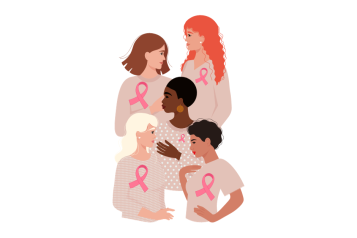What barriers women report to experience when accessing healthcare?

One reason is staff attitude. This for example affects women who have disabilities or mental health issues in particular. Trans women are also at a much higher risk of being affected by negative staff attitudes towards their care. One of the biggest issues is the problem accessing healthcare for those suffering from self-harming. Research has shown negative staff attitude has caused women to suffer further consequences as a result of their worsening desire to self-harm.
Another reason is the dismissal of symptoms by medical staff, particularly gate keepers like receptionists. Research has shown this is particularly severe for certain conditions such as Osteoarthritis, dementia, chronic fatigue syndrome, as well as for women from ethnic minority backgrounds.
Another reason is the lack of time to listen because of the demands placed on healthcare providers. This has been linked to an increase in the rate of kidney failure, a condition more common in women than in men.
Ethnic minority women as a whole suffer more from access to healthcare because of several issues, some from the issues all woman appear to suffer from but at a greater degree while others are specific issues such as systemic racism and discrimination. For example, many women from an ethnic minority background might see mental health issues through a different cultural lens than the mainstream. If the cultural differences are not understood by staff, it could cause problems. Similarly, issues could emerge during pregnancy and the cultural differences surrounding that could cause problems for a women’s care.
Other issues occur because some doctors wrongly assume a woman is more flexible to attend an appointment often by making the assumption she doesn’t work or only works part time hours. This can also affect older women where doctors presume their daughters or other female relatives are able to come and assist with their care and that they don’t have the same level of work commitments as a male. Research has shown these attitudes are changing, but change is not coming fast enough according to some.
Research suggests Ethnic Minorities face inequality when accessing Health and Social care in the UK. It is not known exactly why but research has suggested a variety of reasons such as language, culture and institutional discrimination. The 2011 Census showed that in England and Wales approximately 14% of the population was an Ethnic Minority (Also known as BAME but usage of this term is controversial). Within the Ethnic Minority community there are many different backgrounds as well as a wide variety of social class and education levels. For example, research has shown those who are insecurely housed and/or from a refugee/asylum seeker background have much greater barriers to accessing healthcare.
It is reported by research that language is maybe the dominant factor affecting access to healthcare for those from ethnic minority backgrounds. This is despite the GMC stating that arrangements should be made to accommodate patients unable to fully communicate in spoken English. However, research shows difficulties often occur and the usage of informal translation from families and friends is widespread. Because of the strict 10 minute for an appointment rules, translation time either means less clinical time or delays and cuts to other patient's time - this is particularly an issue if the GP has many non-English speaking patients. There are also concerns about the lack of monitoring and research into this issue and there has been calls for the monitoring of language barriers to become mandatory.
Culture is also cited as a reason why difficulties exist. This was shown in the 2014 Cochrane review, Culture is affected by a patient's views and beliefs about healthcare and the healthcare system as well as how any religious beliefs might affect how they access healthcare and what they are comfortable receiving and from whom. While research into whether staff need training on this has happened, it has been described as low quality and insufficient as well as unsuitable to draw conclusions from. One way to help resolve these issues would be to create accessible services and programmes tailored and co-created by members of the community using expert knowledge to make sure the best service possible is created.
There also concerns about Structural racism in the NHS. Structural racism is defined as ‘the structures, policies, practices, and norms resulting in differential access to the goods, services, and opportunities of society by race’.
The 2015 report, Beyond the snowy white peaks of the NHS?, highlighted about the lack of ethnic minorities at the highest management levels of the NHS.
While progress was shown in 2019 it was criticised as not being fast enough.
Covid 19 and Post Covid - 19 changes to accessing care are seen as possibly making the situation worse. Remote consultations are seen as confusing for people with poor knowledge and poor English skills and Ethnic minorities are believed to have higher rates of tech illiteracy and lack of access to tech. This could be a major issue but research into this so far is lacking and not well developed.


